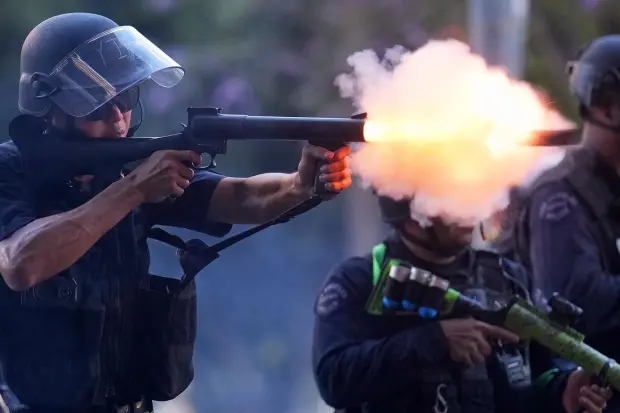The decision to deploy Marines to Los Angeles during intensifying immigration protests has drawn swift reactions across the political spectrum. While critics decry the move as excessive, Trump’s border czar is defending it as both legal and necessary.
What Happened in Los Angeles?
Over the past two weeks, Los Angeles has seen a surge of protests following a string of high-profile immigration enforcement actions. Demonstrators have blocked freeways, occupied government buildings, and clashed with local law enforcement in several neighborhoods. As tensions mounted, the federal government responded by deploying a limited number of U.S. Marines to assist with crowd control and infrastructure protection.
The Border Czar’s Defense
Stephen Miller, serving as Trump’s top immigration advisor and often referred to as the administration’s border czar, addressed the controversy in a press conference Tuesday morning.
Miller argued that the deployment was not about militarizing a city but rather preserving public safety. “When state and local officials fail to control unlawful disruptions,” he said, “it becomes the federal government’s responsibility to ensure stability. This is not about cracking down on peaceful protest—it’s about preventing chaos.”
He added that Marines are operating in a support capacity only and are not actively engaging with protesters.
Legal and Political Fallout
The legality of using active-duty military personnel on U.S. soil, especially for domestic crowd control, is once again under scrutiny. The Posse Comitatus Act generally restricts such deployments, but the administration claims it is operating within legal exemptions due to a declared national emergency at the border.
Democratic lawmakers have pushed back, calling the deployment “an abuse of executive power.” California Governor Gavin Newsom released a statement condemning the action as “authoritarian and unjustified.”
Despite the outcry, the border czar doubled down, insisting that the Marine deployment was a measured response to escalating unrest tied directly to federal immigration enforcement policies.
Public Reaction Remains Split
In Los Angeles, public opinion is sharply divided. Some residents support the Marine deployment, seeing it as a way to prevent rioting and protect local infrastructure. Others fear it sends a chilling message about how the federal government views civil dissent.
Meanwhile, immigration advocates warn that the move could further inflame tensions. “Sending troops to a city already under stress only fans the flames,” said Maria Delgado, director of a local immigrant rights group.
Final Thoughts
The presence of Marines in Los Angeles during immigration protests raises serious questions about the limits of federal power and the role of the military in civil affairs. While the border czar’s defense of the deployment reflects the administration’s broader hardline immigration stance, the long-term implications remain unclear.
For now, Los Angeles finds itself at the center of a growing national debate—one where immigration, civil liberties, and executive authority continue to collide.


